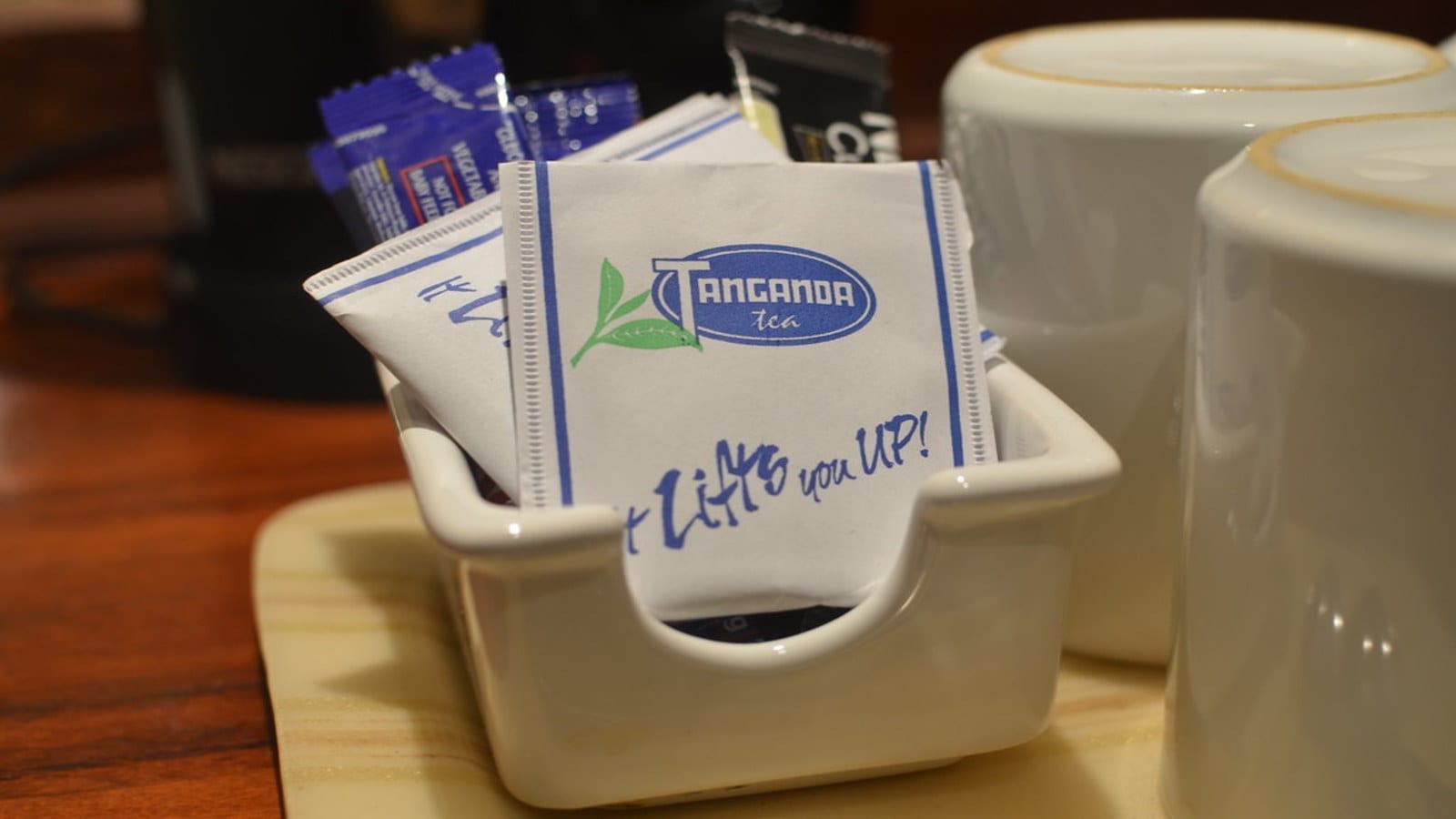Tanganda focuses on value addition
Tanganda Tea Company directors from left financial director Henry Nemaire, marketing director Kwirirai Chigerwe,
chairman Herbert Nkala and chief executive officer Timothy Fennell pose for a picture soon after the company’s first
analysts’ briefing since de-listing from the ZSE in 2007.
Zimbabwe’s biggest producer of horticultural products — Tanganda Tea Company, says it is focusing on enhanced capacity and widen product range into the export market as the company eyes Canada and North America markets.
Already, the company, which produces macadamia and avocados has invested over US$32 million in capital projects in the past decade.
Chief executive officer Timothy Fennell said part of the key areas of focus will be expansion of the packed tea market by growing regionally, macadamia nuts value addition, replacing the water bottling plant in Mutare, mechanisation of the timber operation as well as enhancing plucking mechanisation programmes.
The company is also looking at commercialising its livestock operations.
Although Fennell did not give clear timelines for the projects, he highlighted these would improve production capacity and efficiency to enable the firm to further expand its export market.
Currently, Tanganda exports to over 25 countries and the earnings constitute approximately 72 percent of sales revenue. The company exports 80 percent of bulk tea, almost 90 percent of avocados and almost 100 percent of macadamia nuts.
Fennell said new export opportunities were high especially for value-added macadamia nuts as well as avocados. To date the company has 850 hectares macadamia nuts and 448 hectares of avocado plantation among others.
He pointed out the importance of value-adding tea as opposed to being a bulk tea supplier to the international markets who later package and retail it.
“We need to be doing that as well as we grow our retail side,” he said.
Fennell added the firm was looking at value addition in the macadamia segment such as cracking and exporting kernels to the North America, Canada and European market.
“The world of macadamia is moving and for us to keep pace with what is happening, we need to value add. So for us to keep pace with world trends and also to be able to open doors into other countries, I am thinking specifically North America and countries such as Canada, we need to go into the cracking business, which will then make us sellers of
kernels,” he said.
The kernel is the main product of the macadamia nut tree and is oil or dry roasted after the husk is removed. Oil that is extracted from the culled nuts is commonly used in soaps, sunscreens, and shampoos, while the remaining press cake can be used in animal feed. Currently, China dominates the firm’s macadamia export market.
During the half-year to September 30, 2021, bulk tea export sales of 3 114 tonnes were 5 percent lower than 3 282 tonnes sold in the comparative period of last year. The average export selling price firmed up slightly to US$1,37/kg from prior year average selling price of US$1,35/kg.
Bulk tea production for the period at 2 417 tonnes was in line with the same period of the previous year. Tea remains the company’s major revenue contributor at 65 percent, but its profitability contribution during the half-year period was 59 percent.
Macadamia nuts accounted for 25 percent to total revenue and 29 percent to profitability.
The volume of macadamia production increased by 72 percent to 924 tonnes from 537 tonnes in the prior year season with an average price of primary grades of US$5,09/kg slightly lower than US$5,13/kg in the previous year.
Avocado export sales volumes grew 86 percent to 3 108 tonnes from 1 671 tonnes in the comparative period. However, quality was affected by the cyclone in January 2020, coupled with a hailstorm in June 2020. During the period under review, avocado average selling price went down 14 percent from US$0,77/kg to US$0,66/kg.
There was a 17 percent growth in local market sales volumes against prior year performance which led to overall growth of total hot beverages sales within the first half.
In terms of financial performance for the half-year to September 30, 2021, operating profit in inflation-adjusted terms was $51,5 million compared with $610,6 million in the previous period. Tanganda’s profitability is adversely affected by the disparities between increases in production costs and the movement in the exchange rate.
During the period under review, production costs, including labour, increased by 233 percent in historical cost terms, well ahead of inflation.
The exchange rate depreciated by 8 percent during the period September 2020 to September 2021 versus year-on-year inflation of 51,55 percent.
Consequently, the segment widened its loss to $531,2 million from a loss of $183,2 million.
Finance director Henry Nemaire said the loss was mainly due change in year-end.
“The six-month period to September is a low tea period. We produce 25 percent of our annual tea production during this period,” he said.
Tanganda is divided into two main operating divisions, that is agriculture with five estates and beverages division with a corporate arm responsible for administration of the two divisions.
The company is set to relist on the ZSE before end of this year following its unbundling from hospitality group, Meikles Limited.
Meanwhile, the construction of solar plants at Jersey and Tingamira estates was completed in August 2021 and each plant is supported by a battery pack. An application for Independent Power Producer licence for the solar plant at Ratelshoek Estate was successful and the next process is to carry out some infrastructural reconfiguration works
with the assistance from the Zimbabwe Electricity Transmission and Distribution Company (ZETDC).-eBusiness Weekly










